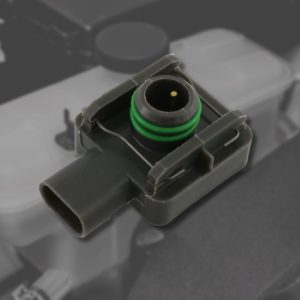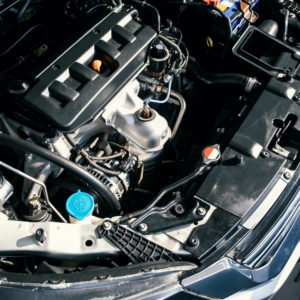The coolant or antifreeze keeps your engine’s temperature stable, but it needs to circulate through the cooling system to work. If anything disrupts the flow, your engine can overheat, leading to costly repairs and part replacements.
It’s normal for the coolant to get hot as it lowers the engine’s temperature, but is boiling coolant a cause of concern?
Reasons Why Your Coolant Is Boiling
Boiling coolant can indicate problems in your engine, so don’t disregard it. Here are some of the common reasons why coolant reaches its boiling point:
Faulty Radiator Cap

The radiator cap maintains the ideal pressure in the cooling system. When the cap is damaged or loose, air can enter the system and disrupt its operating temperature, which could cause the coolant to boil. A failed radiator cap can also cause the cooling system to vent, increasing the temperature even more.
Blown Head Gasket
Air can also enter the cooling system due to a blown head gasket. This can cause the coolant to boil and leak into the cylinder head, resulting in the engine overheating.
Bubbles in the coolant accompanied by white smoke from the exhaust might be a sign of head gasket problems.
Incorrect or Contaminated Coolant
The coolant can boil quickly if it’s the wrong kind for your vehicle. That could happen if you accidentally top it up with a variant different from what’s already in your engine.
The coolant and oil mixing can cause the coolant to boil. When your vehicle’s head gasket is blown or damaged, oil can leak into the openings and contaminate the coolant.
Bad Thermostat
When the coolant gets hot, the thermostat opens to let it flow through the radiator to cool. However, if the thermostat gets stuck closed, it could disrupt the cooling system and cause the coolant to boil.
You can read this article to learn more about the symptoms of a faulty thermostat.
What Temp Does Coolant Boil?
Coolant boils between 300 and 400 degrees Fahrenheit, while antifreeze boils between 225 and 300 degrees Fahrenheit. The coolant’s exact boiling point depends on its brand and type. Also, if you have too much water in your cooling system, expect the boiling point to drop even more.
Do Bubbles In the Coolant Mean It’s Boiling?

No, a bubbling coolant isn’t always boiling. It might simply be a sign that the pressure in the cooling system is rising.
When air gets into the system, air pockets can form and cause blockages, which increase the system’s pressure. This can make the coolant bubble and increase the risk of the engine overheating.
What to Do When Your Coolant Is Bubbling
Turn off your engine and wait for it cool. Then, have your vehicle towed or carefully drive to an auto repair shop near you. Remember that bubbles in your coolant might be a sign that something is wrong with your cooling system, so don’t ignore them.
How to Fix a Boiling Coolant Issue
The fix depends on what’s causing the coolant to boil. For example, if it’s due to a bad radiator cap or a damaged head gasket, replacing it could resolve the problem.
If you’re not an expert on car cooling systems, it’s best to take your vehicle to an auto repair shop to address the issue. Mechanics can pinpoint what’s causing the coolant to boil and resolve it. They can also check the rest of the cooling system for potential issues that the boiling coolant might have caused.
Pressure Test
The coolant can leak when it boils, and one way to identify leaks in the coolant system is through a pressure test.
You can buy or rent pressure testers from automotive part shops. Follow the tool’s instructions on how to conduct the test. You can also watch online videos to see how it’s done.
However, if you want to make sure you’re doing it correctly, you can ask for help from a professional. You can also leave the task to a mechanic.
How to Prevent the Coolant From Boiling

The best way to prevent your coolant from boiling and your engine from overheating is to take care of your ride’s cooling system. Monitor the coolant’s level and condition, and check the coolant reservoir and tank regularly. Take your ride to an auto repair shop regularly for its routine maintenance check-up.
Take your ride to an auto repair shop regularly for its routine maintenance check-up.
–Anthony Harlin, ASE Certified Master Automobile Technician
Also, watch out for the symptoms of a boiling coolant, like bubbles and engine heat. Don’t let air enter the pressurized system. If you spot any of the signs, address them immediately to avoid costly repairs.
The US Department of Transportation reports that cooling system failure is the most common cause of highway mechanical breakdowns, so be observant. Don’t think twice about consulting a mechanic when you notice something unusual while you’re driving.
Any information provided on this Website is for informational purposes only and is not intended to replace consultation with a professional mechanic. The accuracy and timeliness of the information may change from the time of publication.
































